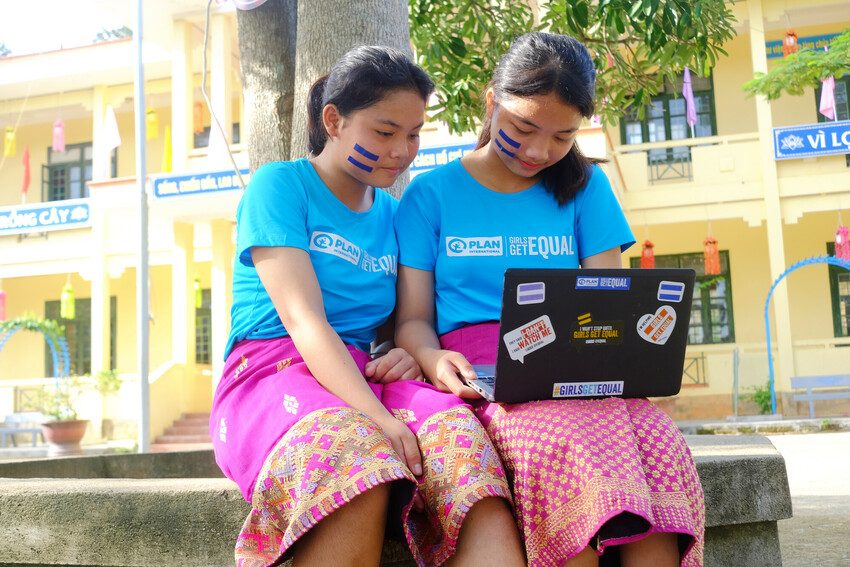Smart schools bridge digital gender divide in Latin America
Girls are challenging the stereotype that technology is ‘for boys’ by learning digital skills in ‘classrooms of the future.’
Technology and the internet can be a great enabler for girls but a lack of opportunities, skills and a fear of discrimination prevent many from using and creating digital tools and online content.
To achieve gender equality, girls and young women need equal access to technology, digital training and to be safe online.

The digital divide, or technology gap, is the difference between groups with access to technology and the internet and those without.
Girls and women often have less access to technology and the internet compared to boys and men. Particularly in developing countries, girls and women struggle to afford technology and internet access. In addition, stereotypes around technology being ‘for boys’ and fear of being discriminated against stop girls from using digital tools.
The gender digital divide in access to the internet* remains largest in the world’s least developed countries at 32.9%. The internet gap is largest in Africa, while in terms of mobile phone ownership, the gender digital divide is most pronounced in South Asia where women are 26% less likely to own a mobile phone* than men.
Without equal access to technology and the internet, girls and women are not able to equally participate in our ever more digital societies. Holding back girls and women in this area affects every aspect of their lives, including their ability to speak out and campaign on issues that affect them.
Moreover, if girls and women are not involved in creating digital tools and online content, they may exacerbate existing inequalities.
The gender technology gap also negatively impacts countries’ potential for economic growth and development. If 600 million more women are connected to the internet in 3 years, this would translate to a rise in global GDP of between US$13 billion and US$18 billion*.
Digital literacy has become almost as important as traditional literacy.
Over 90% of jobs worldwide already have a digital component* and most jobs will soon require sophisticated digital skills. If governments equip girls with digital skills through prioritising education in ICT subjects, they will help girls thrive in economies where routine work has been automated and digital skills are prized.
Technology can also be a powerful tool for girls to become activists and lead change on issues that affect them. Social media platforms, for instance, allow activists to reach a wide audience and organise action towards common causes.
Girls are taking opportunities to become digital creators and learn skills that will allow them to flourish this Girls in ICT Day, write Julia Spencer and Nikita Shrubsole.
Plan International’s global strategy states that “we must harness the power of technology and use innovative solutions to extend our reach and impact. We must focus on the rights of girls, who are most vulnerable to being left behind as the world around us changes.”
It is our responsibility to ensure that instead of being barriers, technology and the internet become enablers for girls and women.
School is often the first place where children are introduced to technology as well as learning the literacy and numeracy skills to make the most of these digital tools. Therefore, we ensure girls and women have equal access to learning relevant technical skills and digital literacy in school and through training programmes to be able to take advantage of technology and digital tools.
Through our global, youth-led campaign Girls Get Equal we are campaigning for a world where girls can live and lead without fear or discrimination. This includes demanding that girls have a right to be safe online and be free to speak up without harassment.
A new smartphone app is helping combat teenage pregnancy in Timor-Leste by providing teenagers access to sexual and reproductive health services and information.
* Plan International is not responsible for the content of other sites.